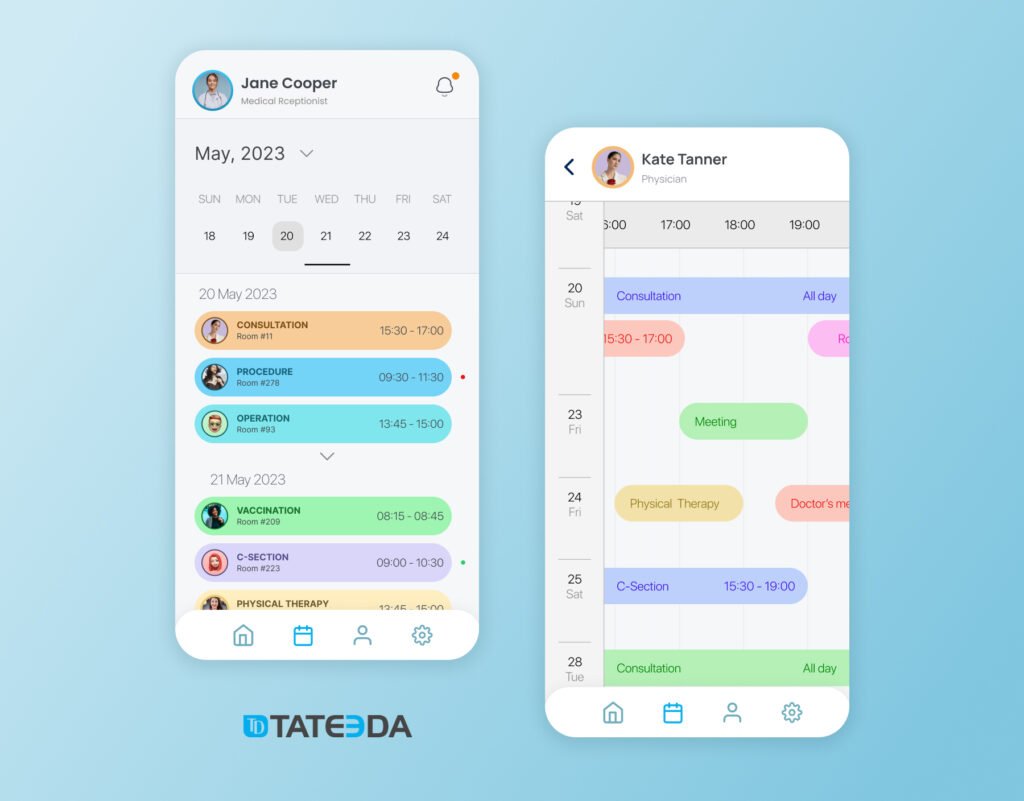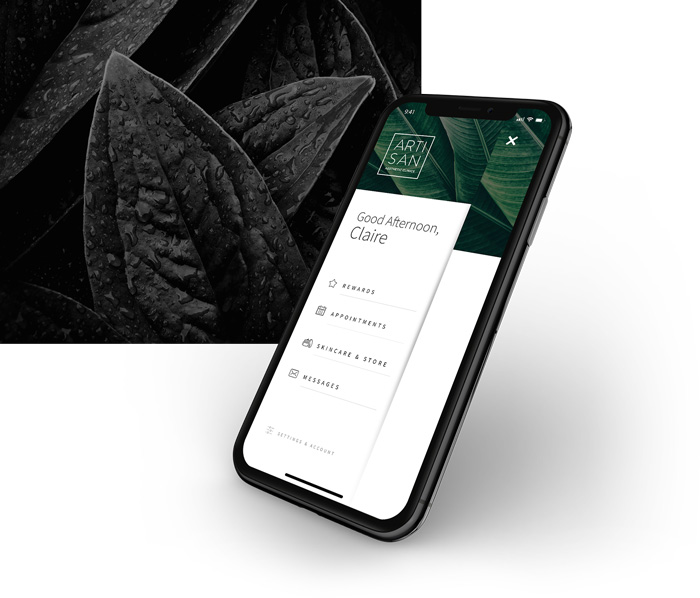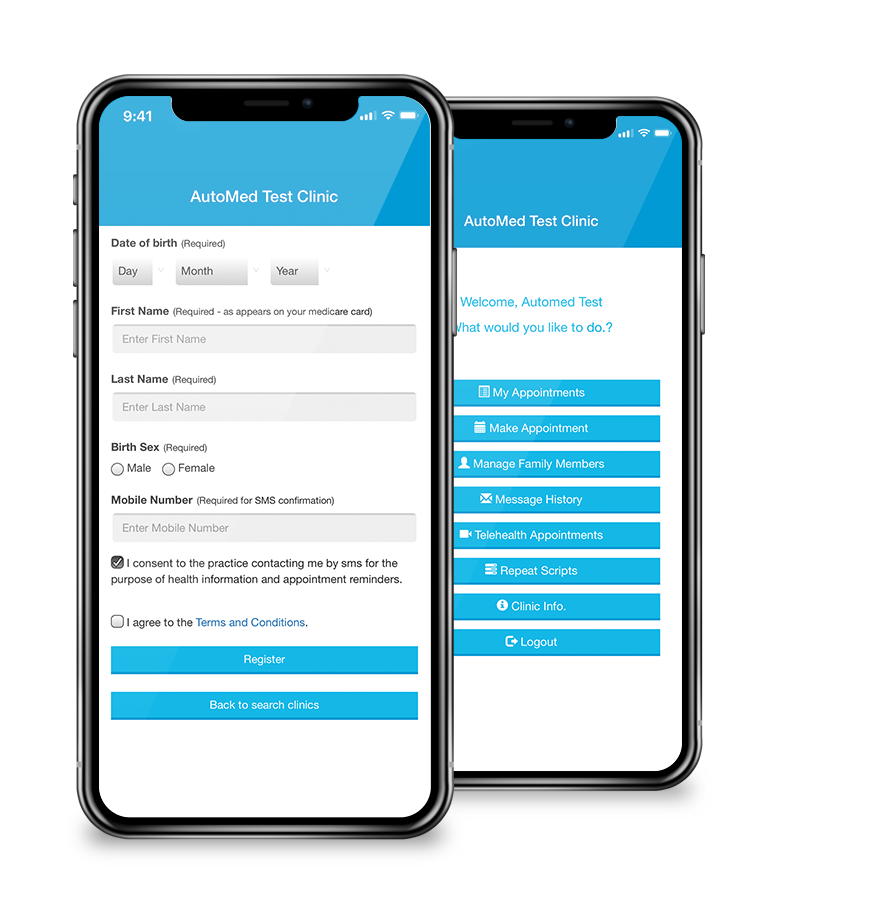Transforming Patient Experience with a User-Friendly Mobile App for Clinics
Transforming Patient Experience with a User-Friendly Mobile App for Clinics
Blog Article
The Future of Medical Care: Why Clinics Need a Mobile Application Today
As the medical care landscape continues to progress, clinics face mounting pressure to adapt to individual assumptions for greater ease and accessibility. The assimilation of mobile applications can offer as a crucial approach for boosting client involvement and streamlining operations.
Transforming Patient Expectations
As the landscape of medical care develops, patient expectations are undertaking a significant improvement. Today's clients are increasingly seeking comfort, accessibility, and customized care.
Furthermore, patients are becoming much more informed and empowered, often looking into therapies and problems online prior to consultations. This heightened understanding is paired with a need for openness in medical care processes, including cost quotes and treatment options. Consequently, companies are urged to adjust by taking on digital devices that boost the person experience.
The assumption for reliable and timely communication has never been higher, with many patients considering responsiveness a vital element of quality treatment. mobile app for clinics. In this advancing landscape, medical care companies have to identify these altering expectations and leverage mobile applications to foster a more patient-centric strategy, making certain that they not just satisfy yet surpass the standards established by today's enlightened customers
Enhancing Client Engagement

Mobile applications facilitate interaction in between clients and health care providers, allowing real-time visit scheduling, reminders for medication adherence, and direct messaging features. These performances not only improve ease but also construct a feeling of responsibility amongst individuals. Mobile apps can provide educational content tailored to private needs, assisting people better understand their conditions and treatment alternatives.
The integration of gamification elements within healthcare applications can additionally encourage people to engage in healthy behaviors, reinforcing favorable way of living modifications. By tracking development and satisfying accomplishments, clients are most likely to remain dedicated to their health goals. Inevitably, improving client engagement through mobile applications brings about boosted health and wellness outcomes, better individual satisfaction, and an extra collective healthcare experience. Facilities that prioritize this element will likely see a significant influence on the high quality of care supplied.
Streamlining Facility Procedures
Improving facility operations is crucial for improving operations efficiency and enhancing person care. The application of mobile applications can significantly minimize management burdens, enabling doctor to concentrate much more on person interactions. By automating appointment scheduling, client check-ins, and billing processes, clinics can lessen wait times and enhance general operational effectiveness.
Mobile applications additionally promote real-time access to patient documents, allowing health care professionals to make educated choices promptly. This try this immediacy not just boosts the quality of treatment yet additionally reduces the chance of errors connected with lost or dated info. Leveraging mobile technology supports a more orderly method to handling client follow-ups and treatment plans, making certain that no essential actions are ignored.
In addition, mobile apps can improve inventory monitoring by giving centers with tools to keep an eye on medications and products effectively. This enables for timely replenishment and aids prevent disruptions in patient treatment because of stock scarcities. By incorporating these functionalities right into their everyday operations, facilities can produce a more natural and efficient atmosphere, ultimately bring about enhanced patient results and satisfaction. Accepting mobile technology is not simply a trend; it is an essential development in the medical care landscape.
Improving Interaction Channels
Efficient interaction is often pointed out as a cornerstone of top quality medical care delivery. In today's hectic clinical environment, mobile applications can considerably improve communication networks in between centers, clients, and doctor. By incorporating mobile apps into their procedures, centers can help with real-time communications, making certain that patients receive prompt details regarding their visits, examination outcomes, and therapy strategies.
Mobile applications additionally empower individuals to communicate directly with their healthcare this teams through protected messaging functions. This direct line of communication promotes a feeling of involvement and permits instant information of worries, which can cause much better adherence to treatment methods. Push notices can remind clients of upcoming visits or medication schedules, reducing no-show prices and boosting total wellness results.

Staying Affordable in Health Care
In a swiftly evolving health care landscape, companies must prioritize technology and versatility to keep an see page one-upmanship. The assimilation of mobile applications into healthcare solutions is no longer optional; it is essential for centers aiming to boost person engagement, improve procedures, and boost total service delivery.
As clients progressively depend on electronic systems for wellness administration, centers that fail to take on mobile technology threat falling back. A properly designed mobile app can use functions such as consultation organizing, telemedicine appointments, and accessibility to medical documents, giving people with convenience and promoting loyalty.

Rivals are also spending in mobile solutions, so remaining ahead needs constant enhancement and staying educated about technological advancements. Clinics have to not only carry out mobile applications but also take part in normal updates and refinements. Inevitably, the successful integration of mobile technology will certainly differentiate forward-thinking healthcare organizations and set the benchmark for patient-centric care in an electronic globe.
Conclusion
In final thought, the combination of mobile applications in facilities is critical to attend to the advancing landscape of individual expectations. Ultimately, the tactical implementation of mobile applications stands for a vital step towards supplying accessible and individualized healthcare, thereby meeting the needs of today's empowered people.
Inevitably, enhancing patient engagement through mobile applications leads to improved wellness outcomes, greater patient complete satisfaction, and a much more collaborative healthcare experience.Mobile apps additionally promote real-time accessibility to person documents, allowing health care professionals to make educated choices rapidly. In today's fast-paced clinical setting, mobile applications can dramatically enhance interaction networks between centers, patients, and medical care suppliers.Mobile applications also equip clients to connect straight with their healthcare groups through safe messaging features. Eventually, the critical application of mobile applications stands for an essential step towards delivering personalized and obtainable health care, therefore satisfying the needs of today's equipped clients.
Report this page